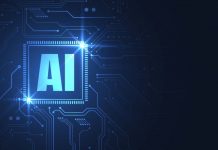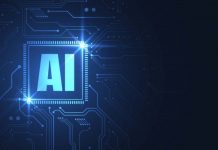This article is written by Ankita Bhailot.
Table of Contents
A brief history of AI
It all started as Science fiction in which machines that can talk, machines that can think or can feel. In the language of Computer Science, Artificial Intelligence (herein AI), is the intelligence demonstrated by machines to follow a human being’s unique reasoning faculties. Philosophers in the year 1956 attempted to make sense of human thinking in the context of a system, and this idea has coined the term ‘Artificial Intelligence’. It is still believed that philosophy has a salient role to play in the advancement of AI until this day.
Early AI research during the 50s investigated points like critical thinking and symbolic strategies. The US Department of Defense took interest in this type of work during the 60s and began training computers by copying basic human reasoning. The Defense Advanced Research Projects Agency (DARPA) for that matter has completed street mapping projects in the 1970s. What’s more, DARPA has delivered skillful personal associates by the year 2003, some time before Siri, Alexa or Cortana were yet to be commonly recognized names.
Advancement in AI has given rise to debates about them being a threat to humanity, whether physically or economically. But AI has become more popular today because of its increased data volumes, advanced algorithms, and improvements in computing power & storage.
How does AI work?
A run of the mill AI examines its current circumstances and takes activities that amplify its chances of accomplishments. Many AI algorithms are capable of learning from the data; that they can enhance by learning new strategies that have worked well in past, or can themselves write other algorithms. AI adds intelligence to existing products. As a rule, AI won’t be sold as an individual application rather as the items you already use will be improved with AI capacities. It robotizes monotonous learning and disclosure through data.
Notwithstanding, AI is not quite the same as equipment driven, robotic mechanism. AI for that matter performs frequent, high-volume, computerized tasks finely and without intervention, rather than automating manual tasks. This particular type of automation will require human enquiry in setting up the system and asking the right questions.
Self-Learning Algorithm
AI adapts through progressive learning algorithms by letting the information do the programming. It finds structure and regularities in data so that the algorithm acquires a skill i.e. The algorithm becomes a classifier or a predictor. This means that the algorithm can teach itself how to play chess, it can teach itself what product to recommend next online.
Further building a fraud detection system with hidden layers was almost impossible a few years ago. It has now been replaced with mind-blogging computer power and large information. The more data you feed the more accurate they become. At the point when algorithms are self-learning, the information itself can become intellectual property.
Data-intensive capability
Each industry has a popularity for AI abilities, particularly question-answering frameworks that can be utilized for legal assistance, patent pursuits, risk notification and clinical exploration. AI works by combining large amounts of data with quick, tedious processing and shrewd algorithms, permitting programming to gain consequently from examples or highlights in the data.
Models under AI
Machine learning
AI is a broad field of study that includes many theories, methods and technologies, firstly such as- Machine Learning, which automates analytical model building. The term Machine learning is when computers use calculations to investigate information and take designs and gather bits of knowledge from the information.
It is simply the ability of computers to instruct themselves and learn from experience and data collected to continually improve their capacities. This empowers AI to accomplish more than aimlessly stick to what it has been customized for while learning from its own encounters dependent on data collected.
Neural Networking
Natural Language Processing is the ability of the computer to comprehend the significance of spoken or written human speech and to apply that understanding to perform an analysis like humans. It utilizes techniques from neural networks, measurements, operation exploration and material science to discover concealed bits of knowledge in data without expressly being customized for where to look or what to finish up.
A Neural Network is a sort of AI that is comprised of interconnected units that measure data by reacting to external data sources, handing-off data between every unit.
Cognitive computing
Cognitive computing is a subfield of AI which strives for natural, human-like interaction with machines. The paramount objective for such machine will be to recreate human cycles which will require an ability to interpret images and speech and then speak reasonably in response using AI and Cognitive computing.
How law firms are responding to AI?
AI has an incredible effect on Industries over the range. While the law business hasn’t been the first to grasp it, it has a great deal of potential to profit from this innovation. Law offices that are grasping this innovation are working all the more time proficiently. Driven by the chance to make master legal portrayal available to everyone, Law firms need to adjust AI, taking note of its capacities to support legal advisors and to show signs of improved results for their customers and become better attorneys simultaneously.
How does AI help?
It is realized that AI is a subjective procedure of the human psyche and empowers computers to finish fundamental employment capacities. At the point when applied to certain necessary calculations, AI permits Computers to decipher the information, perceive examples, and form conclusions.
Advantages for in the legal field
As it relates AI offers various advantages, including an opportunity from commonplace work, and more opportunity for different parts of the activity. ROSS is the world’s first Artificially Intelligent legal advisor. According to the CEO of ROSS Intelligence, it can peruse a million pages of the law in a second, finding the specific entries any lawyer would require.
- With a machine rapidly performing legitimate research and due tirelessness exercises, the lawyer can spare customers a large number of rupees and take out research costs. Further AI’s capacity to quickly affirm realities speeds up the procedure of discovering foundation data, which can quicken assertions and suit procedures.
- AI further makes contract correction steadily productive by featuring standard statements for various applications. It sorts out issues quicker with fewer slip-ups that are frequently overlooked by the natural eye.
- AI can store years’ worth data and can shift through it all to tell lawyers their chances of winning relevant cases.
- AI for lawyers be useful with providing insight on similar cases and help them distinctively answer client questions, this will lead AI to handle many humdrum tasks at once, which empowers lawyers to spend more time on analysis, counselling, negotiations, and court visits.
- Blended in with the weights to offer customers expanding worth and address changes in the workforce, AI and different advancements make up just a single part of the change this industry faces.
Increasing Productivity- The most recognized advantage of AI devices in legal practice is by all accounts improving productivity. AI programming utilizes calculations that accelerate document handling while at the same time recognizing mistakes and different issues. This appears to be to some degree irrational as the Legal profession has since a long time depended on ‘billable hours’, and it regularly doesn’t become a legal advisor to take less time in finishing a task or record.
It is said that AI can examine archives and flag them to a specific case. When a specific kind of archive is indicated as important, machine learning calculations can get the chance to work to discover different reports that are comparably applicable. This grabs the seat of a lawyer.
Therefore, only wiping out manual (or exhausting) tasks will probably be not sufficiently able to drive AI selection. It is indistinct concerning how the change to legal AI will happen. From one viewpoint, we may expect enormous law offices to drive starting selection as they are generally ready to pay for vigorous AI-based devices and reconciliations.
Be that as it may, more current firms would be no doubt start with a lean, robotized, proficiency driven methodology, since they don’t need to manage the huge existing overhead of bigger firms.
Limitations of AI
The fundamental limitation of AI is that it assimilates from the data. No any other manner is there in which information can be fused. This implies any errors in the data will be indicated in the outcomes. If there are any extra layers of prediction or analysis it will later have to be included separately. The present AI frameworks are prepared to do an unmistakably characterized task.
It can be understood with these statements- The system that plays solitaire cannot play poker. The system that distinguishes misrepresentation cannot drive a motor or give you legal guidance. Similarly, an AI system which recognizes medical frauds cannot precisely distinguish extortion claims or warranty claims fraud.
AI & future of Legal Practice
AI is the intelligence of machines generated through the use of computers for performing tasks that usually require human intelligence. Today the AI capabilities only permit computers to achieve or exceed certain human cognitive functions but not all. Researches nowadays are working on developing computers that can match the human mind referring to it as ‘general intelligence’ or ‘superintelligence’, but such an achievement is likely a decade away. Thus, important legal skills based on human judgment, interpersonal skills, and experience will always remain valuable for the lifetime of any practicing lawyer.
AI addresses both the best possibility and the best threat to the legal profession since its arrangement. These applications are just the beginnings of what will be an innovation-based interference to the profession. AI will accept command over a reliably growing bit of law office billable hours, be applied expanding legal tasks, and will require data and capacities outside the current arrangement of capacities of most current practicing lawyers.
Challenges of Legal profession
Today the law office has the chance to be a pioneer in proficiency and profitability with cost viability, however soon AI will be the matter of support and will keep up as opposed to being a pioneer. Of the numerous issues of AI, not many are informed, they are- How will AI change law office billing? On the off chance that AI wipes out a large number of the more normal undertakings in legal practice that are customarily performed by young associates, by what method will this influence the recruiting and progression of young lawyers?
By what method will legal preparation and graduate schools need to change to address the new real factors of AI that have driven lawful practice? In what capacity will AI influence the upper hand of large firms versus small and mid-sized firms? Will AI frameworks be defenceless against charges of the unapproved practice of law? Will legal counsellors be liable for carelessness for depending on AI frameworks that commit errors? Will self-learning AI frameworks should be dismissed and stand up as observer to clarify their own autonomous decision making?
Availing AI in the Legal Profession
In AI, there’s a distinction between general and specific. AI generally involves robot thinking, feeling, and joining in like people. This isn’t like we can see robots performing banking jobs and sitting at desks in place of human lawyers, this is far from reach as of now. Specific AI is intelligence to perform particular tasks and this is a reality in many industries. The advance here is a result of developments in Natural Language Processing and machine learning. This enables us reaching closer to robots performing or helping on lawyers’ customary errands.
Use in Reviewing documents
At some point or another, most technology experts and researchers have encountered the weight of a slow-moving document reviewing. The pressure to reduce time spent through audit and cost control is a significant reason that technology is prime land for the present sprouting utilization of Artificial reasoning (AI) in law. For example, Technology-Assisted Review (TAR), an AI automation, which is helping legal groups to drastically speed up document review and, in this way, decrease its expense. TAR recognizes which documents are probably significant and takes care of those first for reviewing, ordinarily taking out the need to survey from 50 to 90 per cent of an assortment.
In research today, as part of Deep Learning-based AI, machine learning for document classification goes by many names, but the two most common are Technology-Assisted review (TAR) and Predictive coding, which are used more or less interchangeably. AI doesn’t help in any way by setting the search parameters for document review, however using it will improves the speed, accuracy, and efficiency of document analysis.
For example, when lawyers using AI-powered software for document review, it flags certain documents as relevant, the AI learns what type of documents it’s supposed to be looking for. Accurately identifying documents, this is called “predictive coding.” Predictive coding offers many advantages over the old-school manual document review.
Among other things, Predictive Coding:
- leverages small samples to find similar documents
- reduces the volume of irrelevant documents attorneys must wade through
- produces results that can be validated statistically
- is at least modestly more accurate than human review
- is much faster than human review
In-house lawyers have to use AI applications to triage standard agreements like NDAs. Contracts who meet pre-defined criteria can be pre-approved for signature in case otherwise such contracts are kicked back to the legal department for further review and revision.
Use in speeding up the Due diligence
Due diligence is important for many legal professionals, involving activities such as furnishing clients with essential data concerning their M&A achievements. And keeping in mind that due diligence is indispensable for surveying risks and organizing an agreement. It can likewise be incredibly tedious.
From planning and objective setting to the examination and arrangement of fiscal reports, contracts, and other fundamental data, the due diligence process is a strenuous errand. The procedure requires gathering records spared across frameworks and hard drives, inspecting every content for key information focuses, and making a due constancy report dependent on content discoveries. Legal experts invest critical energy and money on each assignment-important asset that could be utilized somewhere else.
Time requirements regularly limit this procedure, and numerous lawyers work late hours or recruit outside assets to satisfy numerous needs in the designated time.
This issue can expand to-
- disappointment over the organization,
- decline worker spirit, and
- even lead to errors that could influence the whole arrangement’s trustworthiness.
Rectifying these errors, be that as it may, further lengthens the procedure and diminishes client fulfillment. AI works simply like a human, except it figures out documents notably quicker, sparing your organization valuable work hours that can be utilized all the more beneficially elsewhere.
Not technology but AI has likely helped businesses significantly improve their due diligence practices through increased automation. With legal AI for due diligence, law firms experience a host of benefits such as:
-
- Saving time and reduce overall costs in the due diligence process
- Eliminate costly human error and the need for manual checks
- Redeploy staff to focus on more productive tasks
- Increase the efficiency of your operation
- Give your organization a unique competitive advantage
- Boost employee morale with streamlined business processes
- Organize the deal room by quickly identifying document types
AI is likewise utilized for improved risk-management decision making. The technology’s calculation can advise an organization regarding an individual’s risk level on different layers. The calculation takes a look at
- historical information, web sources, and
- the candidate’s digital footprints including identity records, criminal records, education, and employment verification, and political activities.
Utilizing the span of information from the computerized world, it can outline potential connections, patterns, and intersections of points of any possibility with dubious action.
Another advantage of utilizing AI in directing due diligence checks and verifications is its capacity to decipher information above human limitations. In contrast to individuals, AI can grasp data from several unique languages, exchanges, and semantics.
Also, AI can utilize facial and fingerprint recognition technology or search aliases to distinguish people who have left both individual and professional impressions over the globe. This is particularly important with people who have common names and along these lines, recognizable proof matching is expected to check the individual under investigation.
What after AI is implemented?
The wide selection of AI in Law may start with a biological system of small and medium-sized law firms that will develop a coalition of firms concentrated from the very first moment on maximal automation and proficiency. These organizations will probably apply AI and another programming to a particular legitimate space; perhaps wills and trusts, or patent law, or business land contract survey, and so forth and they’ll have the option to use technology to accumulate enormous benefit per-employee numbers.
This won’t be done through hugely high rates for their billable hours, yet by charging low rates and scaling their administrations with robotization. For instance, a limited new tech-driven legal firm centred around patent law may smooth out their lead age and deals process, and robotize a gigantic larger part (or if nothing else a huge bit) of their services with Natural Language Processing and AI.
Conclusion
A few Lawyers will contend that ‘Smart Individuals won’t admire this innovation, they’ll need it done as our forefathers would have done it.’ Indeed, for some legal issues, there might be minimal decision yet to use human aptitude, however different procedures, and services will be enlarged intensely by AI, and the field itself will eventually have to move towards self-advancement. A software shall be able to ‘reason input and explain output’ this is the objective of AI.
What is sure is there will be victors and failures among lawyers who don’t take-up AI, individually. As one senior lawyer commented, “Except if private practice legal counselors begin to draw in with innovation, they won’t be relevant even to their customers.”
Not only AI has changed the business itself, but it has also made a terminal incentive for individuals working in it. Expanding trust and straightforwardness, diminishing virtual noise, and leading pursuits that people can feel certain about are just a couple of the numerous advantages that AI has given.
LawSikho has created a telegram group for exchanging legal knowledge, referrals and various opportunities. You can click on this link and join:
 Serato DJ Crack 2025Serato DJ PRO Crack
Serato DJ Crack 2025Serato DJ PRO Crack











 Allow notifications
Allow notifications


